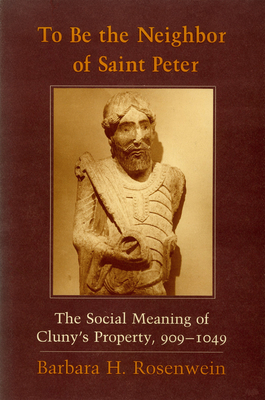Emotional Communities in the Early Middle Ages

Emotional Communities in the Early Middle Ages
Proposing that people lived (and live) in "emotional communities"--each having its own particular norms of emotional valuation and expression--Barbara H. Rosenwein here discusses some instances from the Early Middle Ages. Drawing on extensive microhistorical research, as well as cognitive and social constructionist theories of the emotions, Rosenwein shows that different emotional communities coexisted, that some were dominant at times, and that religious beliefs affected emotional styles even as those styles helped shape religious expression.
This highly original book is both a study of emotional discourse in the Early Middle Ages and a contribution to the debates among historians and social scientists about the nature of human emotions. Rosenwein explores the character of emotional communities as discovered in several case studies: the funerary inscriptions of three different Gallic cities; the writings of Pope Gregory the Great; the affective world of two friends, Gregory of Tours and Venantius Fortunatus; the Neustrian court of Clothar II and his heirs; and finally the tumultuous period of the late seventh century. In this essay, the author presents a new way to consider the history of emotions, inviting others to continue and advance the inquiry.
For medievalists, early modernists, and historians of the modern world, the book will be of interest for its persuasive critique of Norbert Elias's highly influential notion of the "civilizing process." Rosenwein's notion of emotional communities is one with which all historians and social scientists working on the emotions will need to contend.
260.91Lei
260.91Lei
Livrare in 2-4 saptamani
Descrierea produsului
Proposing that people lived (and live) in "emotional communities"--each having its own particular norms of emotional valuation and expression--Barbara H. Rosenwein here discusses some instances from the Early Middle Ages. Drawing on extensive microhistorical research, as well as cognitive and social constructionist theories of the emotions, Rosenwein shows that different emotional communities coexisted, that some were dominant at times, and that religious beliefs affected emotional styles even as those styles helped shape religious expression.
This highly original book is both a study of emotional discourse in the Early Middle Ages and a contribution to the debates among historians and social scientists about the nature of human emotions. Rosenwein explores the character of emotional communities as discovered in several case studies: the funerary inscriptions of three different Gallic cities; the writings of Pope Gregory the Great; the affective world of two friends, Gregory of Tours and Venantius Fortunatus; the Neustrian court of Clothar II and his heirs; and finally the tumultuous period of the late seventh century. In this essay, the author presents a new way to consider the history of emotions, inviting others to continue and advance the inquiry.
For medievalists, early modernists, and historians of the modern world, the book will be of interest for its persuasive critique of Norbert Elias's highly influential notion of the "civilizing process." Rosenwein's notion of emotional communities is one with which all historians and social scientists working on the emotions will need to contend.
Detaliile produsului










